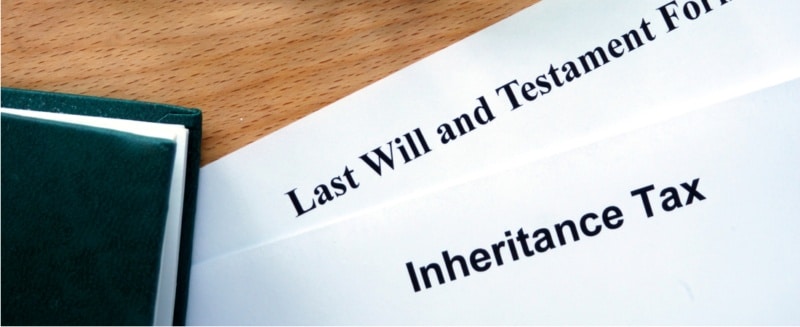Getting an inheritance can be such a bittersweet experience. You might receive lots of money or special mementos from the deceased, but the person with whom you’d like to share the experience is gone.
During this trying time, it’s likely that the last thing on your mind is taxes. But taxes are an important consideration when it comes to receiving an inheritance. You may receive real estate, money, stocks, or other property upon the death of your loved one, and these may have tax implications.
What happens to my inheritance? Do I face any taxes?
Possibly. There are two types of assets you can inherit: those that have no income tax consequences for you, and those that could have you paying taxes on up to 100 percent of the value of the asset.
Certain assets get an increased basis—the value of the asset for tax purposes—upon the date of your loved one’s death. This can solve some valuation problems for people who bought items decades ago or who have been depreciating or refinancing assets. The original basis of an asset is generally lower than the stepped-up basis at the time of inheritance.
Inheriting real estate or stock
Take, for example, inherited real estate. During a person’s life, trying to sell a property without paying taxes can be difficult. This becomes a real problem when a property has risen dramatically in value and has been refinanced or fully depreciated. All the cash and tax benefits have been pulled out, but the tax value of the asset might be the amount the owner paid 30 years ago—or less, in the case of depreciated property. When the owner sells the property, the cash he or she receives may be less than the taxes owed.
If you inherit that property, however, the basis is stepped up to the fair market value on the date of the original owner’s death. Suddenly, a property that might have been a tax burden to someone alive becomes your tax-free windfall. You don’t need to worry about paying taxes on the depreciation or the 30-year old basis of the property, and if you sell immediately after you inherit the property, there may be no income tax at all. In fact, due to the costs associated with selling, there’s apt to be a small long-term capital loss on the sale.
The basis of a stock is also stepped up to fair market value upon the original owner’s death. As an heir, you won’t be taxed on the gain while the original owner was alive, but you can’t claim a loss if today’s fair market value is lower than the original basis.
Inheriting retirement accounts
When it comes time to cash out financial assets that have grown tax-free over the years, including regular IRAs (not Roth IRAs), pension plans, annuities, and U.S. savings bonds, heirs may find themselves saddled with income taxes.
In order to mitigate your tax burden upon inheriting an IRA, consider drawing the money as slowly as legally possible in order to spread the income over several years. Also, determine if there were any after-tax contributions to these accounts. In some years, IRAs may have been funded with after-tax money because the taxpayer’s income was too high to allow for a deduction.
If you inherit an annuity, keep in mind that they usually have a high original contribution. If the decedent had not started taking any payments, that whole initial payment comes back to you tax-free. However, all the earnings are taxed.
The earnings on the U.S. savings bonds are taxable unless they are used for certain educational expenses. However, if the decedent paid taxes on the earnings each year, it’s quite possible that upon inheriting the bonds, you will only have pay taxes on the earnings since the original owner’s death.
If all this talk of death and inheritance has you worried about what you’ll leave your heirs, remember that a little tax planning before death can make a big difference. Start moving taxable assets, such as pensions and IRAs, into Roth IRAs a little at a time each year. Pay taxes on the earnings on savings bonds. Often, with offsetting medical and care costs, these transfers can be done with no tax impact all—or taxed in the lowest of tax brackets.
Eva Rosenberg, EA is the publisher of TaxMama.com ®, where your tax questions are answered. She is the author of several books and ebooks, including Small Business Taxes Made Easy. Eva teaches a tax pro course at IRSExams.com and tax courses you might enjoy at http://www.cpelink.com/teamtaxmama.
[amazon_link asins=’1524763438,B00KYZN882,B00HRYBYRU,B01HO06HAK’ template=’ProductCarousel’ store=’thinkglink-20′ marketplace=’US’ link_id=’0eb3db11-1341-11e8-b5bd-03f289bdd64c’]






